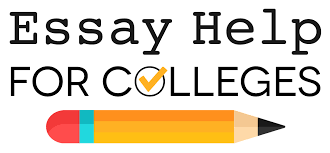Crafting Powerful Academic Arguments: Tips & Strategies
Making strong academic arguments is key for students and researchers. To do well in academic writing, you must learn how to share your ideas clearly.

Using the right tips and methods can make your arguments stronger. For help in making your academic arguments stand out, check out brightessays.com. It's a great resource for achieving academic success.
Key Takeaways
- Understand the importance of crafting powerful academic arguments.
- Learn effective strategies to strengthen your arguments.
- Discover valuable tips to improve your academic writing.
- Explore resources like brightessays.com for expert guidance.
- Develop the skills needed to produce high-quality academic work.
The Foundation of Persuasive Academic Writing
Effective academic writing persuades through strong arguments. When writing academic papers, knowing what makes an argument strong is key. Persuasive academic writing is about presenting facts in a way that convinces your audience.
Key Components That Define Strong Academic Arguments
So, what makes an academic argument strong? A clear and concise thesis statement is crucial. It sets the paper's tone and guides the reader. Logical reasoning and evidence-based support are also key. They show the validity of your claims.
Addressing potential counterarguments also strengthens your argument. This shows you've thoughtfully considered different views.
The Stakes: Why Argument Quality Matters in Academia
The quality of your argument greatly affects your academic success. In academia, arguing well shows your understanding and critical thinking. For more on improving your writing, contact @brightessays.com or call +1229-286-4969.
A well-crafted argument can elevate your grade. It shows your deep engagement and persuasive ability.
Case Study: Anatomy of Award-Winning Academic Papers
Looking into award-winning academic papers can teach us a lot. We can see what makes them stand out. This includes their structure, language, and use of rhetorical devices.
Structural Elements That Earned Top Marks
Top papers have a clear structure that makes their arguments shine. They have a strong thesis statement, organized paragraphs, and smooth transitions. A good introduction with a clear thesis statement can make a big difference.
| Structural Element | Description | Impact on Paper |
|---|---|---|
| Clear Thesis Statement | Sets the tone and direction for the entire paper | Guides the reader through the argument |
| Well-Organized Paragraphs | Enhances readability and coherence | Improves the flow of the argument |
| Effective Transitions | Connects ideas and paragraphs smoothly | Maintains the reader's engagement |
Language Patterns and Rhetorical Devices Employed
The language and rhetorical devices in top papers are key. They help persuade the reader and make the argument stronger. Tools like metaphor, allusion, and repetition add depth and complexity. BrightEssays.com says using these devices well can make a paper more persuasive.
"The use of rhetorical devices is not just about embellishing the text; it's about enhancing the argument's clarity and persuasive power."
Professor Insights: What Evaluators Look For
Professors look for originality, deep analysis, and engagement with the literature. A top paper presents a strong argument and shows a deep understanding of the topic. For tips on writing award-winning papers, check out BrightEssays.com.
https://www.youtube.com/watch?v=2wnmjaYPgel
How Do I Write Strong Academic Arguments: Expert Strategies
Creating a strong academic argument starts with a clear thesis statement. It also needs a well-organized structure. To write well, you must make arguments that are convincing and backed up by evidence.
Developing a Clear and Focused Thesis Statement
A strong thesis statement is key. It guides your paper and keeps your writing focused. To write a good thesis, simplify your argument and make it brief.
Examples of Weak vs. Strong Thesis Statements
Let's look at some examples:
- A weak thesis statement: "Social media has some effects on society."
- A strong thesis statement: "The widespread use of social media changes how we interact. It has both good and bad effects on our society."
The weak statement is too vague. The strong statement clearly states the argument and prepares for detailed analysis.
Building a Logical Framework for Your Argument
After a solid thesis, organize your ideas well. Make sure each point follows the last one logically. Use strong evidence to back up your claims. A well-organized argument makes your writing more persuasive and easier to follow.
For help with writing strong arguments, contact BrightEssays.com at +1(229)286-4969. They can improve your writing skills and help you create top-notch academic papers.
"A well-structured argument is the backbone of any successful academic paper. By focusing on a clear thesis statement and a logical framework, you can significantly enhance the persuasiveness of your writing."
The Research Foundation: Finding and Evaluating Evidence
A strong academic argument starts with solid research and credible evidence. To build a compelling argument, you need a good research base. This means finding and checking evidence from trusted sources. It's key to support your claims and win over your audience.
Identifying Credible Sources for Academic Writing
Look for credible sources like academic journals, reliable news outlets, and government reports. For help finding these sources, check out brightessays.com. It's also important to check the source's credibility. Look at the author's background, the publication date, and the research method.
| Source Type | Characteristics | Examples |
|---|---|---|
| Academic Journals | Peer-reviewed, in-depth research | Journal of Educational Psychology, Harvard Business Review |
| Reputable News Outlets | Timely, fact-checked reporting | The New York Times, BBC News |
| Government Publications | Official data, policy documents | U.S. Census Bureau, World Health Organization reports |
Integrating Evidence Effectively in Your Arguments
After finding credible sources, it's time to use the evidence in your arguments. You can quote, paraphrase, or summarize to add other researchers' findings to your story. Make sure to explain why the evidence matters to your argument.

Case Example: How Evidence Transformed a B Paper into an A Paper
A student got a B on a climate change paper at first. But, by adding recent data from trusted sources and using evidence well, they improved their argument. This shows how crucial a strong research base is in academic writing.
Case Study: Transformation of a Weak Argument into a Strong One
Improving a weak argument takes careful work. This case shows how detailed analysis and smart changes can make a weak argument strong.
Before: Identifying Critical Weaknesses in Structure and Logic
The first argument was missing a clear thesis and had a messy flow. Spotting these flaws is key to building a solid argument. Its structure was all over the place, making it hard to follow.
It also leaned too much on unproven statements and didn't have solid evidence. Fixing these problems was vital to making the argument better.
The Revision Process: Strategic Improvements
The first step in revising was to write a clear thesis. This helped build a logical structure for the argument. Adding reliable sources and facts made the argument stronger.
Need help improving your argument? Call +1229-286-4969 or visit @brightessays.com for expert advice.
After: Analysis of the Strengthened Argument
The updated argument was much better, with a clear and orderly structure. Using evidence and trusted sources made it more believable.
This change shows how crucial the revision process is in writing. By fixing weaknesses, you can make your arguments much more convincing.
Crafting Compelling Counterarguments and Rebuttals
To make your academic argument stronger, it's key to think about counterarguments and come up with good rebuttals. This shows you really get the topic and makes your point more believable. By knowing what the opposition might say, you can answer their points before they even make them.
Anticipating Opposition to Your Position
Anticipating opposition means seeing things from your critics' point of view. You need to really understand the topic and know other ways to look at it. By finding the weak spots in your argument, you can craft specific answers to their concerns.
Techniques for Addressing Counterarguments Effectively
When you tackle counterarguments, it's not just about saying you've thought of them. You need a smart plan to knock down or work with these opposing views. You can use evidence to challenge their points, show the flaws in their logic, and prove your side is still the strongest.
Case Example: Successful Counterargument Strategies
For example, a study on climate change might face the opposition's claim that fighting carbon emissions is too expensive. By showing how renewable energy can save money in the long run, you can beat their argument. For more advice on counterarguments, check out brightessays.com.
The Language of Persuasion in Academic Writing
The art of persuasion in academic writing is about using language to sway the reader. When you write, it's key to mix objectivity with persuasive words. This way, you grab your audience's attention.
Balancing Objectivity and Persuasive Rhetoric
It's tough to stay objective while making a strong argument. You must present facts in a way that backs your claim without seeming biased. Keeping this balance is key to being credible. Effective writers blend persuasive language with evidence to make their points clear and strong.
To find this balance, try these tips:
- Support your claims with solid evidence.
- Steer clear of emotional appeals that can hurt your credibility.
- Show you've thought about other views by presenting counterarguments.
Word Choice and Tone Considerations
The words and tone you pick greatly affect how your argument is seen. Choose a formal tone that's respectful and doesn't come off as aggressive or condescending. Your words should be clear and without any confusion, making sure your message gets across well.
| Word Choice | Tone Considerations |
|---|---|
| Precise and formal language | Avoid overly complex vocabulary |
| Use technical terms when needed | Keep a respectful tone |
| Steer clear of jargon and slang | Watch out for emotional appeals |
BrightEssays.com Analysis: Language Patterns in Top-Graded Papers
BrightEssays.com studied top-graded papers to see what language patterns they used. The study showed how important it is to use persuasive language well while staying objective. For more insights and help, reach out to BrightEssays.com at +1229-286-4969.
By grasping and applying these tips, you can make your academic writing more persuasive. This will make your arguments stronger and more convincing.
Discipline-Specific Argumentation Strategies
Creating a strong argument is all about knowing your field. It's important to understand the rules of your discipline. This helps you write better and make your points clear.

Humanities vs. Sciences: Adapting Your Approach
In the humanities, you dive into texts and history to make cultural points. For example, analyzing a book closely can support your argument. On the other hand, science focuses on data and experiments to explain things.
To do well, you need to know these differences. In the humanities, you might use qualitative analysis. In science, quantitative analysis is key.
Professional Examples Across Different Fields
Here are some examples:
- In literary studies, you might analyze a novel's themes to support your view.
- In environmental science, you could use data to argue for climate change policies.
- In historical research, you'd use primary sources to interpret past events.
Consulting Experts: When to Seek Help
Stuck on how to argue in your field? Get help from experts. Visit brightessays.com or call +1229-286-4969. They offer great advice to improve your writing.
Common Pitfalls and How to Avoid Them
When you write academic arguments, knowing common pitfalls is key. It's not just about having a strong argument. It's also about avoiding mistakes that can weaken your message. We'll look at major pitfalls and how to avoid them.
Logical Fallacies That Undermine Academic Arguments
Logical fallacies are errors in reasoning that can weaken your argument. Some common ones include:
- Ad Hominem: Attacking the person making the argument instead of the argument itself.
- Straw Man: Misrepresenting someone’s argument to make it easier to attack.
- False Dichotomy: Presenting only two options when more exist.
Knowing these fallacies can help make your argument stronger and more convincing.
Structural and Stylistic Mistakes to Watch For
Structural and stylistic mistakes can also harm your argument. These include:
- Poor Organization: Not structuring your argument well.
- Lack of Clear Thesis Statement: Not stating your main argument clearly.
- Inconsistent Tone: Using a tone that doesn't match your argument or audience.
To avoid these, plan your argument well and revise it carefully.
Case Study: How Small Errors Affected Argument Credibility
A student had a strong argument but didn't cite sources properly. This led to plagiarism accusations. A small mistake like this can hurt your argument's credibility a lot. For help avoiding these mistakes, call +1229-286-4969 for expert advice.
By knowing these pitfalls and avoiding them, you can make your academic arguments more credible and persuasive.
Conclusion: Putting It All Together for Academic Success
Making strong academic arguments is key to doing well in school. By learning the tips in this article, you can make your school work better and get higher grades.
First, it's important to have a clear thesis statement. Then, build a logical structure and use solid evidence. Also, think about opposing views, use persuasive words, and adjust your style for different subjects.
If you need help, check out brightessays.com or talk to their team. They can help you get better at making arguments and improve your school work. You can call them at +1229-286-4969 for one-on-one help.
By using these tips and getting help when you need it, you can do well in school. You'll make arguments that show off your knowledge and skills.
FAQ
What are the key components of a strong academic argument?
A strong academic argument has a clear thesis statement and a logical structure. It also uses credible evidence and rhetorical devices. For help, visit brightessays.com or call +1229-286-4969.
How do I develop a clear and focused thesis statement?
To craft a strong thesis, first identify your topic and purpose. Make sure your statement is specific, arguable, and relevant. Brightessays.com offers more tips.
What is the importance of identifying credible sources in academic writing?
Finding credible sources is key to a strong argument. It shows your argument's validity. For tips, visit brightessays.com or call +1229-286-4969.
How can I effectively integrate evidence into my academic arguments?
To integrate evidence well, choose relevant and credible sources. Use proper citations and explain the evidence's significance. Brightessays.com has more information.
What are some common pitfalls to avoid in academic argumentation?
Avoid logical fallacies and structural mistakes. Also, don't ignore counterarguments. brightessays.com and +1229-286-4969 offer guidance.
How can I craft compelling counterarguments and rebuttals?
To make strong counterarguments, anticipate opposition and address weaknesses. Visit brightessays.com for tips.
What is the role of language in persuasive academic writing?
Language is crucial in academic writing. Use the right words and tone to persuade.brightessays.com and +1229-286-4969 can help with language analysis.
Related Posts
Can You Write a Research Paper in One Night?
Making strong academic arguments is key for students and researchers. To do well in academic writing, you must learn how to share your ideas clearly. Using the right tips and....
The Ultimate Essay Writing Checklist for University Students
Making strong academic arguments is key for students and researchers. To do well in academic writing, you must learn how to share your ideas clearly. Using the right tips and....
Keeping Your Writing Plagiarism-Free: A Guide
Making strong academic arguments is key for students and researchers. To do well in academic writing, you must learn how to share your ideas clearly. Using the right tips and....




